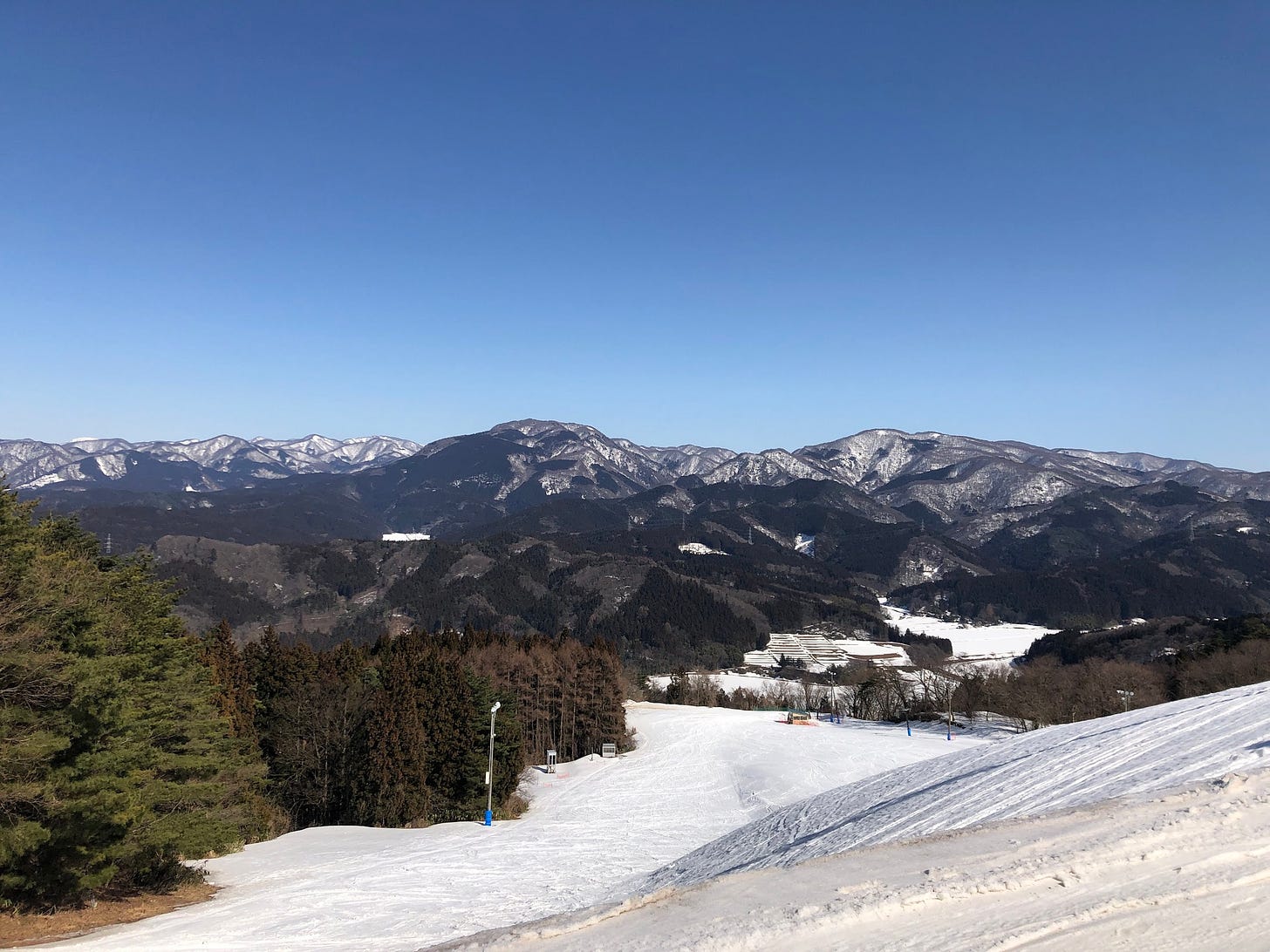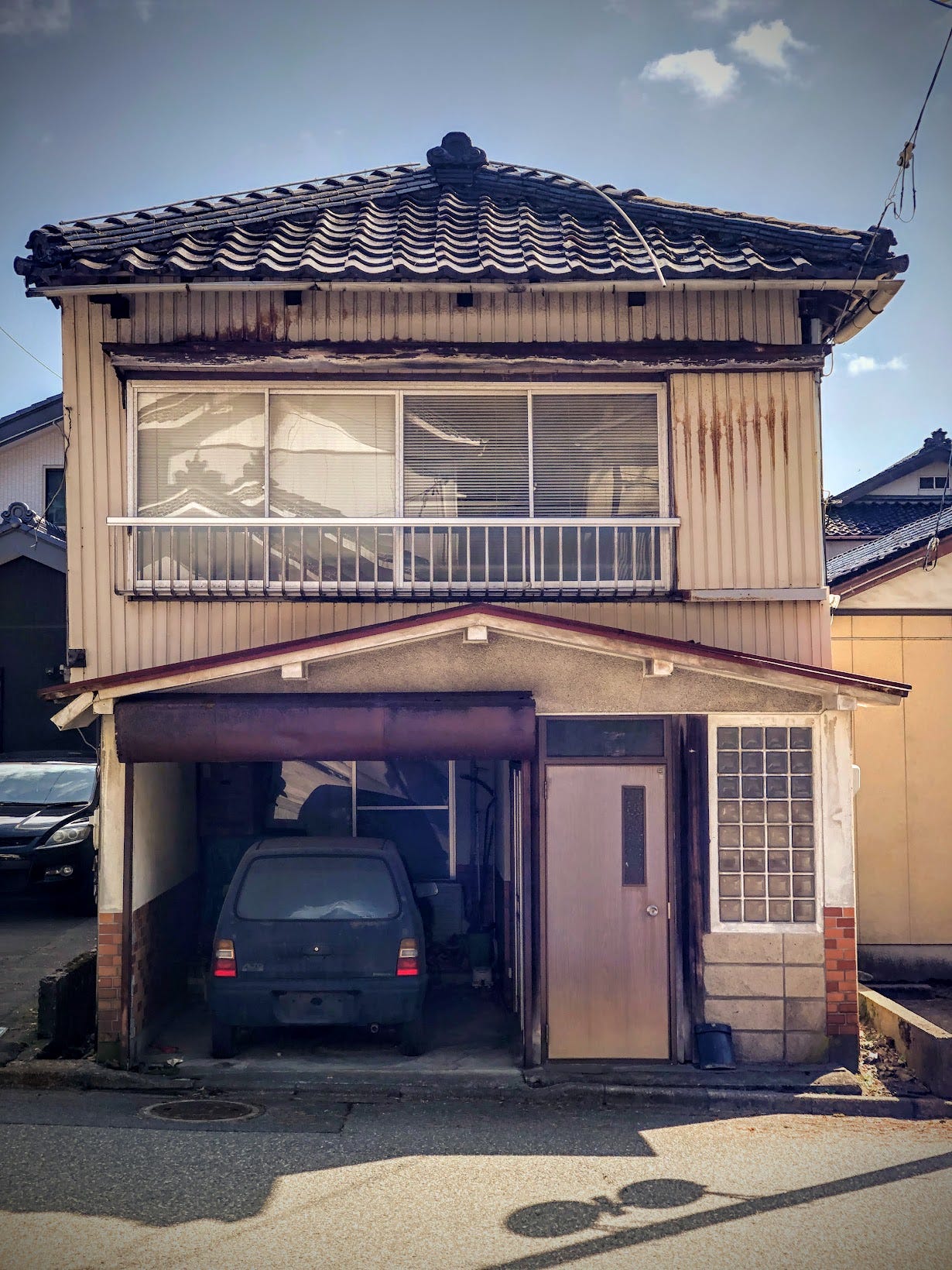Prescribe Nature
And the ultimate in Japanese mountain warriors
Kia ora koutou. Tim Bunting the Kiwi Yamabushi here bringing you concepts, life advice, and hiking guides from the Japanese mountains.
Prescribe Nature

A friend of mine is a war veteran. It’s crazy hearing the stories, but probably the worst one is that they lost all of the other members in their squad. Their role meant they weren’t on the frontlines per se, but they were definitely where the action was.
Needless to say, this left my friend deeply scarred on an emotional level. So scarred in fact, it was hard for them to do normal everyday things. It got so bad they went around to any number of psychologists, psychiatrists, psychics, you name it.
Then one day they found one person who simply said:
Go to nature. Alone.
That was the catalyst. Until then, my friend hadn’t spent that much time out in nature. The usual stuff you do as a kid, camps here and there, but nothing much more.
And truth be told, once they did, they were hooked.
Since then, for the past few decades, my friend has dedicated the better part of every weekend to getting out into nature.
And oh the sights they have seen!
If you’re not from there it’s hard to fathom, but the Pacific Crest Trail from Mexico to Canada through California is where my friend found solace.
Mexico to Canada.
And let me tell you, they have a pretty intimate knowledge of this trail.
Not only that, more than once my friend came face to face with bobcats, mountain lions, bears, all manner of creature. One time they even managed to capture a photo of a bobcat taking a rest under a tree on the other side of the same clearing they were ‘camping’ in cowboy style.
It’s a bit much for this lowly Kiwi to comprehend, but I guess when nature is the medicine, you really do do all you can to get the biggest dose.
Like Junko Tabei.
Junko Tabei

Probably the coolest part of it, at least I think so, is through these escapades my friend also got to meet a pretty special person, Junko Tabei. Until they mentioned her, I wasn’t aware who she was, but Junko Tabei was at the pinnacle of mountaineering.
Literally.
Tabei was the first woman in the world to climb Mt. Everest.
As a Kiwi, which means I’m two degrees of separation away from Sir Edmund Hillary, and as an avid mountain lover, this is pretty high on the list of cool things.
And if you read into her life, it gets even cooler.
Literal and Mental Mountains

Tabei had to get through layer upon layer of sexism just so she could get on the mountains. Some men refused to climb with her simply because of her gender! (Japan still has mountains that women aren’t allowed on!)
Tabei also often lacked funding to be able to do her hikes, resorting to making her gear by herself to climb Mt. Everest. Gloves made out of the cover of a car really make you appreciate how far mountain climbing gear has come in the following decades!
Tabei continued climbing right up until her dying breath, and it’s a good thing she did. Not only was Tabei the first woman to complete the Seven Summits challenge, she helped lead efforts in cleaning up rubbish left behind by climbers of Everest (maybe not just rubbish (content warning)). Closer to home, Tabei led excursions up Fuji-san for schoolchildren affected by the Great East Japan Earthquake in 2011, whose 12 year anniversary is tomorrow.
It’s all so inspiring. And for me it’s all evidence that, when in doubt, prescribe nature.
Say Sayonara to Sayonara: Article in Japonica Publication

Japanese is full of terms that don’t quite translate into English. Some terms even come from English (anime, karaoke, or my personal favourite plus alpha, anyone?), and many have more meanings than their English equivalent alludes to.
For example, did you know it is extremely rude to use ‘Sayonara’ in Japanese?
Read more to find out why, and what to do about it!
Your House Your Castle
That friend from earlier, it turned out their house backed onto a medieval castle. So I did a bit of digging, in terms of reading that is.
It turns out that Takadate-yama in Tsuruoka was in fact the location of Oyama Castle, originally called Oura Castle. Part of Sakata City just south of me, a tiny township called Sagoshi, was home to the Sagoshi Clan and Sagoshi Castle. And also, I feel a bit stupid for not knowing this before, Tsurugaoka Castle in central Tsuruoka was originally called Daihoji Castle. Daihoji Masauji is said to have commissioned the rebuild of Haguro-san’s Five Story Pagoda, the current iteration constructed in 1372.
Plus, there was a castle called Oguni Castle near Atsumi-dake in Atsumi Onsen, way to the south of Tsuruoka City.
Which is to say, I have some updating to do, and maybe a few more videos to make as well.
On The Blog This Week

I managed to confuse a few people with the title, but last week I finished writing up my translations of all 100 Famous Mountains of Yamagata (you can find them all here). It was a lot more fun than I thought it would be (who would want to do such a task?), and I wrote about what I learned doing so.
Like my friend from earlier, life experiences can be harrowing. However, every experience carries with it certain lessons. It’s up to you how you go about taking them in, and also how you go about searching for them.
The Kiwi in Kiwi Yamabushi is from Māori. In Māori Mihi (introductions), you start off with your mountain and your river. I write about that here.
I’ve done this before, but I just realised this blog post from this week has the same title as one from a few years back. I guess it shows how much I think about it.
Lastly, I wrote about how to deal with detractors, or people who seemingly only take away from your work.
Mountains of Wisdom: Tell Your Mum!
If you think your mum would enjoy this, go ahead and share it with her. Or someone else, I guess.
Let me know what you enjoyed, and if you didn’t like anything, hit the unsubscribe button. You know you want to.
Get more content on the little-known side of Japan and Japanese culture on my blog, YouTube, Instagram, Facebook, Twitter, or LinkedIn.
Ka kite ano.
Tim.




Interesting stories! I am curious about the term "summer ski field." Is this a place to go grass skiing?
Junko Tabei <3 There is sadly so little published about her in English, though, "Honouring High Places: The Mountain Life of Junko Tabei" (2017) is a treasure.
My review of "Honouring High Places" on GoodReads!
https://www.goodreads.com/review/show/3542122955